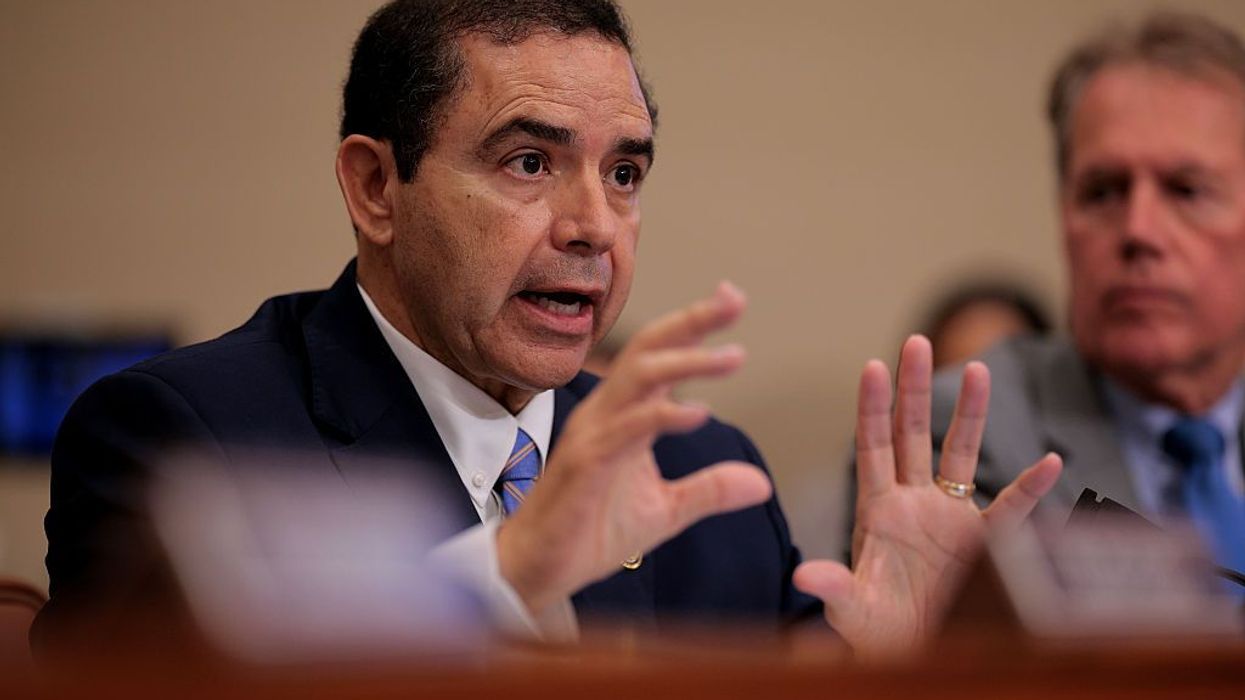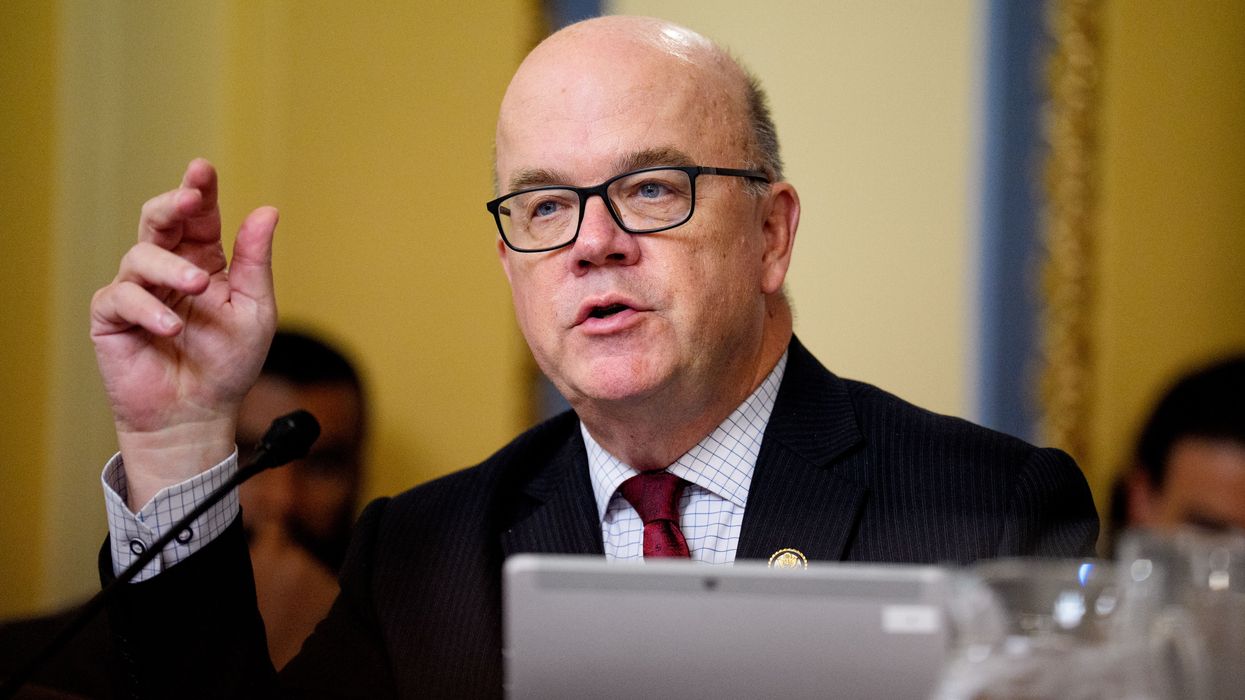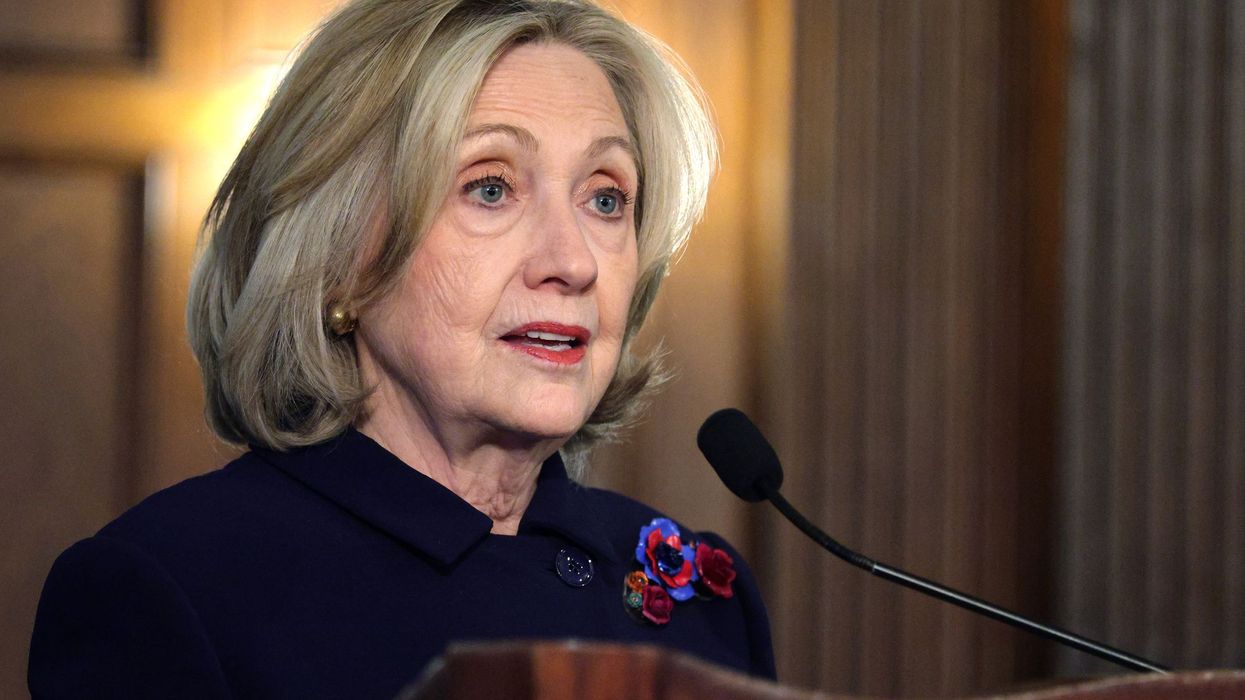October, 08 2009, 02:45pm EDT
Laser Uranium Enrichment Undermines US Nuclear Non-Proliferation Efforts
WASHINGTON
Experts last week warned that a
proposed uranium enrichment nuclear facility in Wilmington,
NC would undermine U.S. efforts to prevent the spread
of nuclear weapons and materials in other countries.
In a letter to the U.S. Nuclear Regulatory Commission, the experts
noted that the planned Global Laser Enrichment Commercial Facility would
complicate diplomatic efforts to discourage the use of this technology in other
countries. They explained that, "Should
the United States be seen to embrace the use of laser isotope enrichment as a
commercially viable technology, there can be little question that other states
will be strongly encouraged to follow this lead and develop such technology for
their own use," and that, "Given the great difficulty of detecting laser isotope enrichment
facilities, their spread could undermine U.S. nonproliferation efforts and the
ability of the International Atomic Energy Agency to confirm the absence of
undeclared nuclear activities in nuclear Nonproliferation Treaty (NPT)
non-nuclear-weapon states."
The U.S. Nuclear Regulatory Commission is considering a license request
by General Electric-Hitachi for its planned Global Laser Enrichment Commercial
Facility.
Laser technology would be used as an alternative to centrifuge or
gaseous diffusion to enrich uranium for nuclear fuel. The use of this
uranium enrichment technology could detract from U.S. and international security
efforts to detect and monitor nuclear programs worldwide as global interest in
nuclear power grows. If enriched to a concentration of 20% uranium 235 or
higher, enriched uranium can be used to make nuclear weapons.
A covert enrichment facility using laser technology would be harder to
detect because it would use less energy and be of smaller size, and thereby be
easier to hide.
A laser uranium research program in Iran escaped detection in
2002. Another laser enrichment research experiment was also detected in South Korea
in 2004 after several years. The discovery of undeclared centrifuges
enrichment facilities in Iran, at Natanz in 2002 and more recently at Qom,
underscore the importance of being able to detect covert facilities that could
be used to make nuclear weapons-usable material.
The full text of the letter is below and available
online. The attachments referred to in the letter are "Nuclear
Power, Disarmament and Technological Restraint" by James Acton, Survival, Vol 51 No. 4, August-September
2009, pp.101-126, and "Laser Enrichment: Separation Anxiety," by
Jack Boureston and Charles D. Ferguson,
Bulletin of the Atomic Scientists, vol. 61, no. 2, March-
April 2005, pp. 14-18, available
online.
September 30, 2009
Nuclear Regulatory Commission
Washington,
DC
Dear Members of the Commission:
We believe the potential demonstration effect on other states from
licensing the General Electric-Hitachi Global Laser Enrichment Commercial
Facility (Docket No. 70-7016) in Wilmington,
North Carolina raises significant
proliferation issues. Should the United States be seen to embrace the use
of laser isotope enrichment as a commercially viable technology, there can be
little question that other states will be strongly encouraged to follow this
lead and develop such technology for their own use. Given the great
difficulty of detecting laser isotope enrichment facilities, their spread could
undermine U.S.
nonproliferation efforts and the ability of the International Atomic Energy
Agency to confirm the absence of undeclared nuclear activities in nuclear
Nonproliferation Treaty (NPT) non-nuclear-weapon states. The rationale
for such concerns is set forth in greater detail in the attached articles by
two of the signers.
Accordingly, we request (1) that the Commission makes the potential of
this facility to contribute to the spread of laser isotope enrichment
technology-and thus to the increased risk of nuclear
proliferation-an explicit factor in its decision, and (2) that the
Commission prepare a Programmatic Environmental Impact Statement on the
licensing of laser isotope separation facilities that includes specific
consideration of the demonstration effect of such U.S. action on international
proliferation risks.
Dr. James Acton, Nonproliferation Associate
Carnegie Endowment for International Peace
David Albright, President
Institute for Science and International Security
Thomas B. Cochran, Senior Scientist,
Natural Resources Defense Council
Dr. Charles Ferguson, Senior Fellow for Science and Technology
Council on Foreign Relations
John Isaacs, Executive
Director
Council for a Livable World
Daryl Kimball, Executive Director
Arms Control Association
Miles A. Pomper, Senior
Research Associate
James Martin
Center for
Nonproliferation Studies
Monterey Institute of International Studies
Leonard S. Spector, Deputy Director
James
Martin Center
for Nonproliferation Studies
Monterey Institute of International Studies
*Institutional affiliations are for identification purposes only
Center for Arms Control and Non-Proliferation is a Washington, D.C.-based 501(c)3 non-profit, non-partisan research organization dedicated to enhancing international peace and security in the 21st century. The Center is funded by grants from private foundations and the generosity of thousands of individual donors.
LATEST NEWS
‘This Is Disgusting’: Trump Pardons Henry Cuellar After Bribery, Money Laundering Charges
"Henry Cuellar, the last anti-choice Democrat in the House, sold out his own community for bribes from a foreign government and oil corporation," said Sunrise Movement in condemning the Trump pardon.
Dec 03, 2025
President Donald Trump on Wednesday announced that he was pardoning Democratic US Rep. Henry Cuellar, who was indicted by the Department of Justice in 2024 on charges of bribery, conspiracy, and money laundering.
In justifying the pardon, Trump baselessly claimed that the Texas lawmaker was the victim of vindictive prosecution by former President Joe Biden in supposed retaliation for Cuellar's criticisms of Biden's immigration policies.
"Henry, I don't know you, but you can sleep well tonight," Trump wrote at the end of his pardon announcement. "Your nightmare is finally over!"
According to federal prosecutors, Cuellar and his wife, Imelda Cuellar, engaged in a corrupt scheme that involved taking $600,000 worth of bribes from a fossil fuel company owned by the government of Azerbaijan in exchange for desired policy outcomes.
"The bribe payments were laundered, pursuant to sham consulting contracts, through a series of front companies and middlemen into shell companies owned by Imelda Cuellar,” prosecutors alleged in their indictment. “In exchange for the bribe payments to Imelda Cuellar, Henry Cuellar agreed to perform official acts in his capacity as a member of Congress, to commit acts in violation of his official duties, and to act as an agent of the government of Azerbaijan."
As noted by congressional reporter Jamie Dupree, Cuellar is the twelfth current or former member of Congress whom Trump has pardoned, and is the first one to receive a pardon without having been criminally convicted.
Cuellar is also just the second current or former Democratic member of Congress to receive a pardon from Trump, who also pardoned former Illinois Gov. and ex-US Rep. Rod Blagojevich, who was found guilty in 2011 on multiple corruption charges related to his attempt to sell a US Senate seat that had been vacated by Barack Obama after his election to the presidency in 2008.
Some progressives expressed revulsion at Trump's pardon of Cuellar, one of the most conservative members of the House Democratic caucus who has nonetheless been defended by party leadership despite criminal charges leveled against him.
"This is disgusting," wrote Sunrise Movement's official X account. "Henry Cuellar, the last anti-choice Democrat in the House, sold out his own community for bribes from a foreign government and oil corporation. Then he cozied up to Trump for a pardon while the Democratic establishment stood by and watched."
Melanie D'Arrigo, executive director of Campaign for New York Health, speculated that Trump pardoned Cuellar as a reward for stifling past progressive policy ambitions.
"Henry Cuellar is part of the Problem Solvers Caucus—a 'bipartisan' group where the Democrat members repeatedly undermine the Democrats' agenda to help Republicans, while taking campaign donations from Republican billionaires," she wrote. "This is a 'thank you.'"
Emma Vigeland, cohost of "The Majority Report" talk show, wondered if Trump had worked out an explicit quid pro quo with Cuellar ahead of the pardon.
"Cuellar is an anti-abortion Democrat who will likely switch parties now that Trump has gotten him out of a dozen bribery and money laundering charges," she wrote.
However, the Texas Tribune reports that Cuellar on Wednesday filed to run for reelection as a Democrat, which for now casts doubt on him switching parties as a condition of getting pardoned.
Keep ReadingShow Less
Congressmen Unveil Bipartisan War Powers Resolution to Block Trump War on Venezuela
"No conflict for oil, no armed intervention, no war with Venezuela!" said Rep. Jim McGovern.
Dec 03, 2025
As President Donald Trump and Defense Secretary Pete Hegseth face mounting fury over their deadly boat bombings and threats against Venezuela, a trio of US lawmakers on Tuesday introduced a bipartisan war powers resolution aimed at blocking any attacks on the South American country not authorized by Congress.
"Donald Trump claimed he would put America first—instead, he's trying to drag us into an illegal war in Venezuela," said Rep. Jim McGovern (D-Mass.), ranking member of the House Rules Committee and co-chair of the Tom Lantos Human Rights Commission, in a statement. "Whatever this is about, it has nothing to do with stopping drugs."
"Trump just pardoned the former president of Honduras, who was convicted of sending cocaine to the US. And... he pardoned a guy who brought fentanyl in from China via the dark web," he highlighted. "To me, this appears to be all about creating a pretext for regime change. And I believe Congress has a duty to step in and assert our constitutional authority. No more illegal boat strikes, and no unauthorized war in Venezuela."
So far, congressional efforts to prevent Trump from waging war on Venezuela and continuing to blow up boats the administration claims are running drugs in the Caribbean and Pacific—the US military has attacked 22 vessels and killed at least 83 people—have not been successful.
On Tuesday, while answering questions about reporting that the first vessel attack on September 2 involved a double-tap strike that killed survivors, the president signaled he will soon pursue long-threatened attacks on Venezuelan soil.
"We're going to start doing those strikes on land too," Trump said. "The land is much easier" than bombing boats, "and we know the routes they take," he continued, referring to alleged drug traffickers.
Meanwhile, Rep. Joaquin Castro (D-Texas), a cosponsor of the new resolution and ranking member of the House Foreign Affairs Committee's Western Hemisphere Subcommittee, said that "President Trump has undermined our alliances in the Western Hemisphere, openly interfered in elections, conducted illegal strikes on boats in the Caribbean, and threatened foreign military intervention."
"He has put our country at the brink of a war with Venezuela without a debate or vote in the Congress," Castro said of Trump. "This resolution will ensure that every member of the House is on the record about sending service members to a war that Americans do not want."
Castro and McGovern are spearheading the new push with Rep. Thomas Massie (R-Ky.), who previously joined with Democrats to force the House's November vote on releasing federal files related to deceased sex offender Jeffrey Epstein, Trump's former friend. The bill is also backed by three California Democrats: Reps. Sara Jacobs, Sydney Kamlager-Dove, and Ro Khanna.
"The Constitution does not permit the executive branch to unilaterally commit an act of war against a sovereign nation that hasn't attacked the United States," Massie stressed. "Congress has the sole power to declare war against Venezuela. Congress must decide such matters according to our Constitution."
Keep ReadingShow Less
Hillary Clinton Joins in Blaming TikTok for Young Americans' View That Israel Is Committing Genocide
"I guess Hillary Clinton also thinks that Amnesty International called what’s happening in Gaza a genocide because they saw some videos on TikTok and just 'did not know history,'" said one observer.
Dec 03, 2025
Since Israel began bombarding Gaza and starving its population of more than 2 million Palestinians in October 2023, the consensus that the Israeli government is committing genocide has steadily grown to include international and Israeli human rights groups, a United Nations panel, Holocaust scholars, and nearly 40% of Jewish Americans, according to one striking recent survey.
But in 10 words, former US Secretary of State Hillary Clinton on Tuesday waved away the findings of respected groups like Amnesty International and renowned experts like Brown University professor Omer Bartov, when she commented on why young Americans are expressing support for Palestinians.
"They were getting their information from social media, particularly TikTok," said Clinton.
Without pointing to any evidence, the former secretary of state said young people in the US are "seeing short-form videos, some of them totally made up, some of them not at all representing what they claim to be showing, and that’s where they get their information" about Israel's attacks on Gaza.
She added that "it’s not just the usual suspects"—without naming who those pro-Palestinian "suspects" are.
"It’s a lot of young Jewish Americans who don’t know the history and don’t understand," she said. "A lot of the challenge is with younger people."
Hillary Clinton blames TikTok and “totally made up” videos for young people’s views on Israel and Palestine.
She says social media influenced “not just the usual suspects” but also “young Jewish Americans who don’t know the history and don’t understand.” https://t.co/rUVXRqK2rK pic.twitter.com/hAwG7Gbhwf
— Prem Thakker (@prem_thakker) December 2, 2025
Her remarks echoed those of former Obama White House speechwriter Sarah Hurwitz, who spoke recently about the challenges Zionists are presented with when they try to defend Israel to young Jewish people who have seen widely available, credible images and news out of Gaza, where Israel has killed more than 70,000 Palestinians and is continuing to restrict humanitarian aid despite a ceasefire deal reached in October.
"Anything that we try to say to them, they’re hearing it through this wall of carnage," Hurwitz lamented last month, drawing condemnation.
Clinton was speaking at an event in New York City for Israel Hayom, the most widely read newspaper in Israel, which is run by billionaire Miriam Adelson, a megadonor to President Donald Trump. Adelson published an editorial in the Jewish Journal in November 2023 saying pro-Palestinian protesters "are dead to us," and her late husband, Republican donor Sheldon Adelson, said in 2014 that the Palestinians are "an invented people."
Jeremy Slevin, a senior adviser to Sen. Bernie Sanders (I-Vt.), pointed to the irony of Clinton attending an event associated with the Adelsons and then claiming that "the kids are being radicalized by anti-Israel propaganda."
Clinton has frequently claimed that pro-Palestinian Americans, particularly students who took part in nationwide campus protests last year as they urged the Biden administration to comply with US law and stop funding Israel's attacks on Gaza, are simply misinformed about Palestine and ignorant of history, particularly pointing to the 2000 Camp David Summit hosted by former President Bill Clinton.
The former secretary of state has repeated the claim that the Palestinians were offered a "generous deal" at the meeting and "walked away"—a "myth" that Camp David negotiator Robert Malley has debunked, warning it's been used by Clinton and others to "justify Israel's genocide."
Robert Malley on the myth of “Palestinians walked away” at Camp David (July 2000):
➤ Malley says the popular story pushed since 2000 – that Arafat rejected a “generous offer” – is contradicted by the actual record. Israeli PM Barak sidelined the Palestinians for a year,… pic.twitter.com/3vlf1Rl4qj
— Drop Site (@DropSiteNews) November 28, 2025
"She’s the one getting the history wrong," including at the Israel Hayom event, said Drop Site News on Tuesday.
A number of observers took issue with Clinton's suggestion that anti-Israel sentiment in the US is being driven solely by young people, with Just Security executive editor Adil Haque issuing a "periodic reminder that the biggest shift in attitudes toward Israel and Palestine has been among older Democrats."
In 2022, 43% Democratic voters ages 50 and up had an unfavorable view of Israel. That percentage has risen sharply since Israel began its onslaught in Gaza, with 66% of those voters reporting an unfavorable view in a Pew Research Center poll this year.
Meanwhile, 71% of Democrats ages 49 and under opposed Israel in the same poll, and 62% of them had expressed opposition in 2022, denoting a less extreme shift in opinion.
"Democrats get their news from CNN more than other mainstream sources," said Haque, pointing to the network's recent investigation about Palestinian aid-seekers who were killed by Israeli forces. "If you're a 60-year-old with grandkids and you read or watch CNN's Gaza reporting, you don't need TikTok to know that what's happening is very, very wrong."
Dylan Williams, vice president of government affairs at the Center for International Policy, also suggested Clinton has an inaccurate view of who opposes Israel's ongoing attacks on Palestinians.
"I’m nearly 50. I don’t use TikTok. I listen to NPR 'Morning Edition' and read the Financial Times daily," said Williams. "I’m a lawyer who has worked on Israel-Palestine issues for the last 20 years. The evidence I’ve seen that Israel committed atrocities including genocide in Gaza is overwhelming."
Author Jason Overstreet wondered how Clinton would explain the findings of human rights groups like Amnesty International and Israel-based B'Tselem, which pointed to testimonies by Israeli soldiers and the documented destruction of Gaza's food system when it concluded in a report in July that Israel is committing genocide in the exclave.
"I guess Hillary Clinton also thinks that Amnesty International called what’s happening in Gaza a genocide because they saw some videos on TikTok and just 'did not know history,'" said Overstreet. "Young people’s views on Israel are based on young people knowing that Israel has committed genocide."
Keep ReadingShow Less
Most Popular


